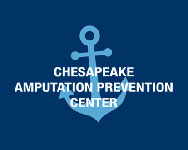When to Seek Medical Care From Our Annapolis Foot Doctors
Most people can take care of wounds at home by keeping the area clean, applying antibiotic cream, and covering it with a bandage. However, if you have underlying medical conditions that interfere with healing or your condition worsens, it’s important to have a professional podiatry exam right away.
If you notice any of the following symptoms, contact us for a same-day appointment at any of our three Central Maryland offices
Chronic Wounds and Ongoing Inflammation
Foot and ankle ulcers and other wounds might heal very slowly or not at all. The injury may scab over repeatedly, but never rebuild healthy tissues and new skin. This means your condition is still in the inflammation stage—and if it’s still not progressing after about four weeks, it’s time for specialized treatment.
Infection
If you think infection is slowing your foot wound recovery, don’t hesitate to get proper care, as infections can spread to other parts of the body. Signs of infection include:
- Swelling
- Redness
- Pain or tenderness
- Skin that feels hot
- Oozing pus or liquid
- Dark skin around the edges of the wound
- Foul smell
Potential Consequences of Ignoring Foot Wounds
Although it’s easy to think time heals all wounds, this isn’t always the case in more severe circumstances. If you don’t experience the critical proliferative and remodeling stages referenced above, it’s crucially important for professional medical care to avoid serious, life-altering consequences, especially for people with diabetes and foot ulcers.
Hospitalization
If an infection becomes too severe to manage with outpatient care, it may become necessary for you to have inpatient treatment for the condition. This is especially true if someone develops or is likely to develop sepsis—an extreme immune reaction to infection that results in additional complications throughout your body.
Amputation
To prevent the septicemia from spreading and save the life of the patient, it may be necessary to amputate the injured area. Even with assistive devices, this result can lead to decreased mobility and poorer quality of life.
Death
The longer a patient waits to get care, the more difficult it can be to control the infection. When the blood, essential organs, and bone are contaminated, it’s life-threatening.
How Our Chesapeake Amputation Prevention Center Can Help
At Annapolis Foot & Ankle Center, our amputation prevention specialists utilize a wide range of treatments to help our patients throughout Central Maryland who are struggling with wounds that aren’t healing normally. This includes traditional treatments and the latest medical advances, such as:
- Foot care education
- Offloading pressure through the use of crutches, a scooter, or a wheelchair
- Custom orthotics
- Compression
- Limb salvaging surgeries to avoid amputation
- Amniotic tissue grafts
- Dressings
- Alginate
- Collagen
- Moist
- Antimicrobial
- Composite
- Debridement
- Synthetic skin substitutes
We have the advanced therapies diabetics and other wound management patients need to recover and regain mobility. Whether you’re dealing with a new injury or a complicated foot wound recovery, we’ll provide exceptional attention and detailed care to promote better health.


 It might start as a minor cut, scrape, or blister, but a small sore on your foot can quickly become dangerous if you have certain conditions, such as diabetes, high blood pressure, or neuropathy. At
It might start as a minor cut, scrape, or blister, but a small sore on your foot can quickly become dangerous if you have certain conditions, such as diabetes, high blood pressure, or neuropathy. At 